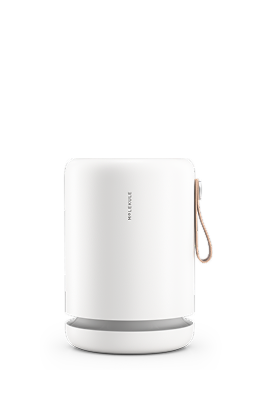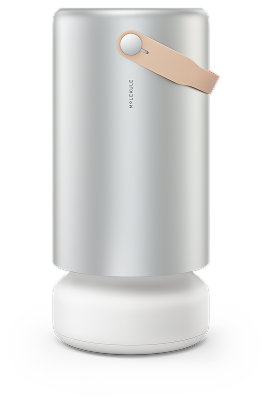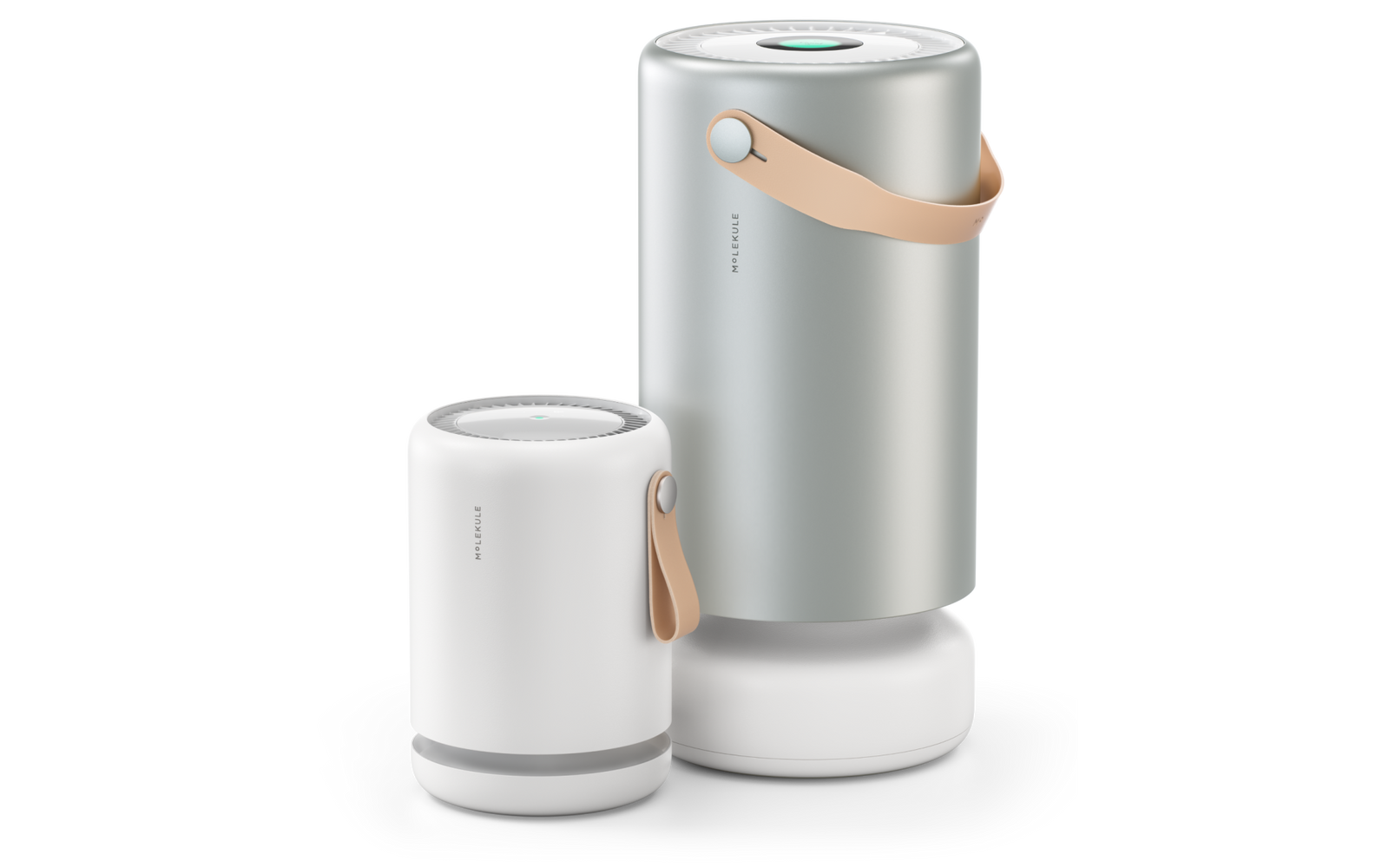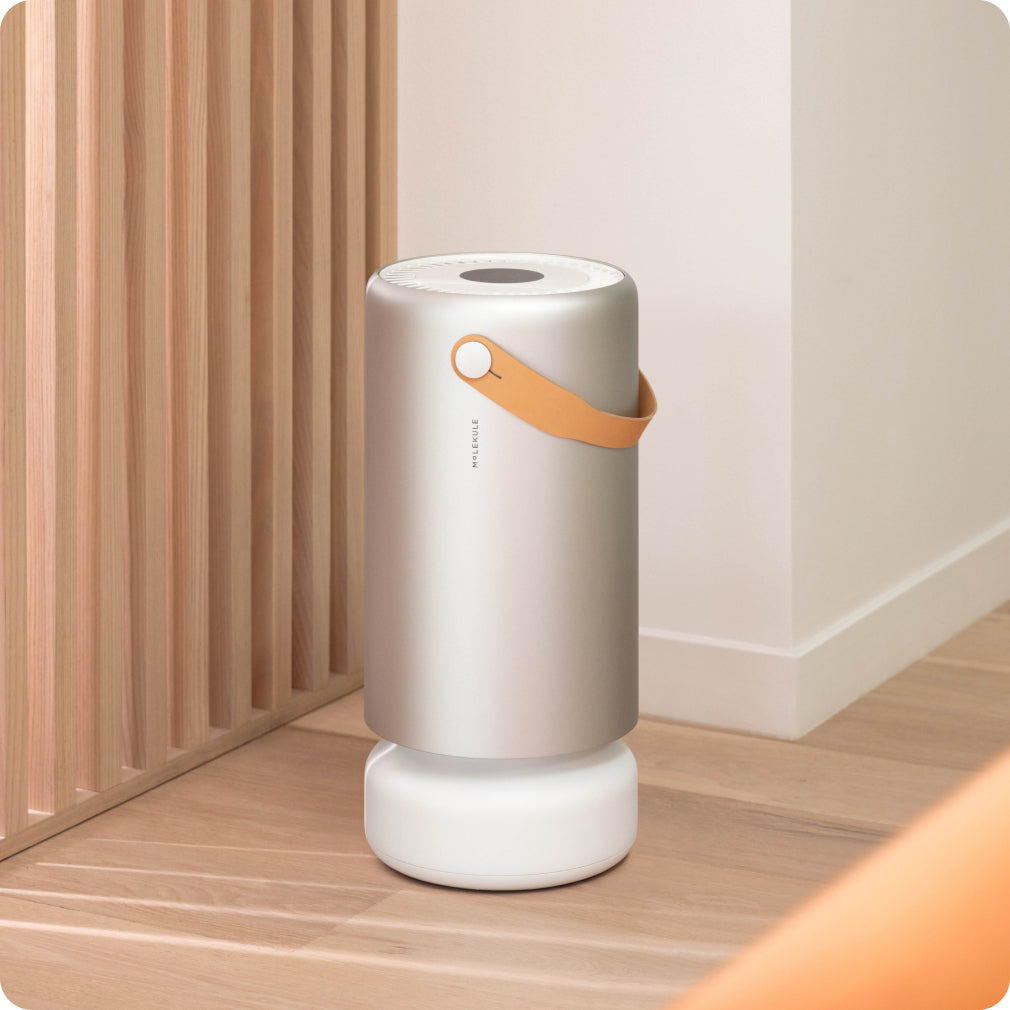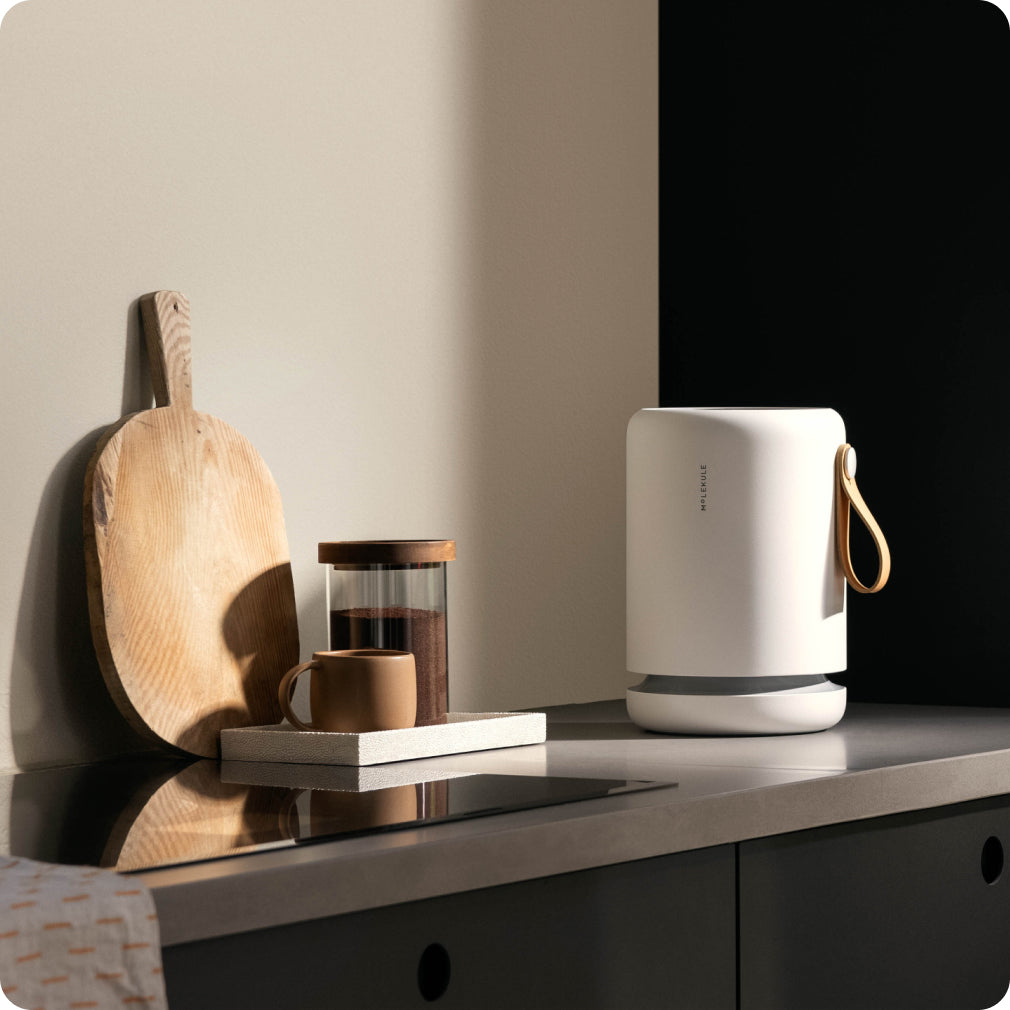Molekule is very pleased to announce our latest innovation in the science of clean air, a new filter that combines the destroying power of PECO with the particle-capturing efficiency of HEPA. Our new PECO-HEPA Tri-Power filter captures more than 99.97% of particles 0.3 microns in size, offering true HEPA protection against fine particles. In addition to these two layers of protection, activated carbon further reduces VOCs in the air.
Let’s take a journey through the 3 layers of the new PECO-HEPA Tri-Power filter.
What is Molekule’s new PECO-HEPA Tri-Power filter?

What is the black outer layer of a PECO-HEPA Tri-Power filter?
Activated carbon filtration is the first line of defense in a Tri-Power filter. It has been used to purify water for thousands of years and is a very simple and time-tested method of removing pollutants. Toxins are unhealthy because they attack our carbon-based bodies, so offering them a carbon-based filter first can be a very effective defense. Carbon water filters are used to remove many different contaminants, but carbon air filters are primarily used to remove gasses like VOCs or smells from the air.
The primary drawback of activated carbon is that unlike our bodies, activated carbon cannot process or otherwise neutralize what it has captured. As time progresses and during different environmental conditions even a large carbon filter can become saturated in a matter of weeks or months. In addition, a carbon filter that has captured pollutants may release over time, particularly when temperature or moisture levels change.
In the Tri-Power filter, activated carbon is the first line of defense, meant to quickly soak up airborne chemicals. The proprietary PECO catalyst is waiting deeper in the filter to handle necessary pollutant destruction and cover activated carbon’s drawbacks.
Is the PECO-HEPA Tri-Power a real HEPA filter?
The PECO-HEPA Tri-Power filter meets the HEPA standard. Particle pollution, also known as particulate matter or just PM, is one of the most insidious types of air pollution and is associated with the most negative health outcomes. Smoke, dust, pollen, mold, and a vast panoply of hazardous chemicals stick to particles as they float through the atmosphere making them more toxic as time goes on. The smallest of these, known as fine particles or PM2.5 and ultrafine particles or PM0.1, can easily penetrate deep into the lungs and move into the blood where they are distributed throughout the body.
Because it can get to almost anywhere in the body, exposure to PM doesn’t just have an impact on our heart and lungs. PM can also elevate blood pressure, have a negative impact on both male and female reproductive health, and has even been linked to dementia. One study on US particle pollution found that living in areas with elevated particle pollution increases diabetes risk by at least 20% compared to neighboring areas with lower levels, and another found a link to autism in children exposed to PM.
A filter rated as having HEPA efficiency has been tested to capture 9,997 out of every 10,000 particles that are 0.3 microns in size with every pass through the filter. This size is chosen because most particles 0.3 microns wide have just the right balance of weight and size to be the most difficult to trap in the fibers of a filter. In theory any other particle will be easier to capture, so HEPA filters are very good at removing particles of all sizes. MERV 16 filters, like the original PECO-Filter, can capture 95% of particles in this size range on each pass through the filter.
Is the PECO-HEPA Tri-Power filter the same PECO technology?
The PECO-HEPA Tri-Power filter uses our proprietary PECO technology to destroy pollutants, just like our original PECO-filter. Particles have many sources, but the fine and ultrafine particles have the highest potential to cause harm. Studies have shown, for example, that fine particles that form in the air from chemicals like VOCs and ozone contribute significantly to cardiovascular and respiratory problems. These chemicals are also irritants on their own and can have a negative impact on air quality.
Photo Electrochemical Oxidation, or PECO, can destroy chemicals like VOCs that it captures from the air before they can become particles or get into your body. Combined with activated carbon and HEPA, PECO adds a final layer of protection for your indoor air quality. Allergens, viruses, VOCs, or any other pollutants that manage to penetrate the first two layers are targets for destruction by PECO.
Where do I get the new Molekule filter with HEPA?
PECO-HEPA Tri-Power filters are only available through our site, Molekule.com.
You can get PECO-HEPA Tri-Power filters for your Molekule Mini or Molekule Mini+ here.
You can get PECO-HEPA Tri-Power filters for your Air Pro here.
